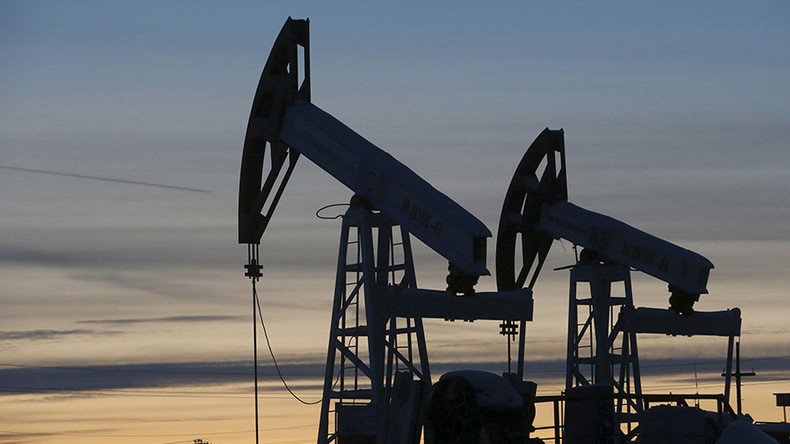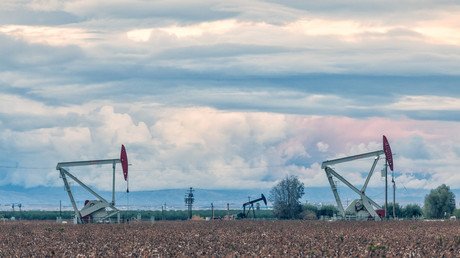Oil price up on first US production decline in months

The price of crude has edged up on Monday due to the first fall in US drilling activity since January.
Brent crude futures were trading at $48.97 per barrel, a rise of 0.4 percent, at 9:20 GMT following last week's jump of 5.2 percent in their first weekly gain in six weeks.
US West Texas Intermediate (WTI) crude futures were up 0.52 percent to $46.21 per barrel, adding to last week's seven percent gain.
Global price rises have been curbed on a reported increase in the Organization of the Petroleum Exporting Countries (OPEC) output despite the cartel’s pledge to tighten supply.
According to energy services firm Baker Hughes, the rig count is still more than double the 341 rigs operating in the same week a year ago despite the recent cutback.
The WTI price was given a boost by the expected increased gasoline consumption surrounding the July 4 holiday in the US, according to traders polled by Reuters.
Meantime, there is still a glut as production activity within OPEC has climbed to a 2017 high.
The cartel's output in June rose by 280,000 barrels per day (bpd) to 32.72 million bpd, according to a survey carried out by Reuters.
READ MORE: France to stop issuing new oil & gas exploration licenses – environment minister
“To put that in context, that is nearly a quarter of the 1.2 million barrels (per day) OPEC agreed to cut,” said Greg McKenna, chief market strategist at AxiTrader.
The analyst stressed the increase has been driven by higher output from Nigeria and Libya, which were exempted from the deal.













